The country was occupied by Portugal and the Netherlands but taken over by France in 1677. In 1854, it officially became a colony of France until 1960, when the country gained independence. On their annual trip, Horti-Consult International visited the "land of cordial hospitality": Senegal. Below, as is tradition, is the trip report.
We will skip the further history of the African country for now. Google is your friend here. We picked up the thread at the visit to the Dutch embassy in Dakar. Here, the team with a crop advisor was warmly received by Vivian Ndamba Djeumen, who is an Agricultural Policy Advisor. She arranged for them to get in touch with companies in Senegal.

Vivian is an intermediary between Dutch companies and companies in Senegal in agriculture. There will be new projects in the field of agricultural companies. There is expected to be a lot of development in agriculture in the coming year. The demand for agricultural products in this country is very high with good prices.
Agroseeds
The Dutch visited Agroseeds' trial farms. Here, four greenhouses have been built by Greentech, where trials of varieties and the introduction of new varieties are done. People were busy setting up the new crops for the new season.
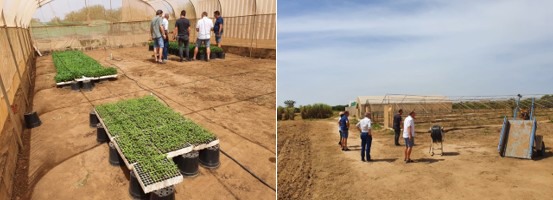
QVS
The company QVS was founded by four people four years ago. The area covers 250 hectares. The company would like to expand. All soils are irrigated using T-Tape. Groundwater is pumped from a depth of 200 meters. Filtered, the water is of good quality. QVS grows onions, beans, and chili peppers.
Onions are sown directly with a 120-day grow-out period. After this, they are dried in the field for 3-5 days, then stored in large halls and traded within 4 weeks. Unlike in the Netherlands, they can only store the onions here for 4 weeks. In the Netherlands, it is 7 months. A 50% increase in onion consumption is expected in the next 25 years. Onion consumption in Europe is between 5 kg and 9 kg. In Africa, it is 40 kg. A lot of onions are imported from the Netherlands. Onions here are 4 times more expensive than in the Netherlands.
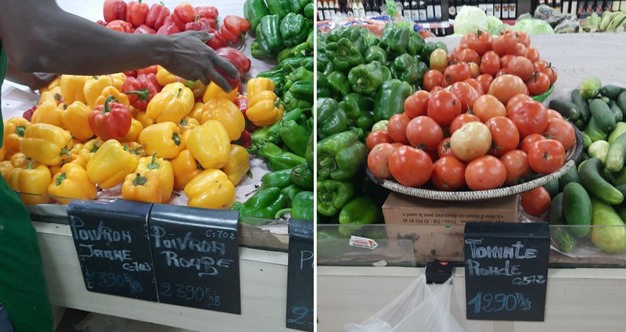
In between, local markets were also visited.
Globally, there is less availability for production due to good fields. There are 45 people working here, together with seasonal workers the total comes to 116. The aim is to do as much manual work as possible to provide opportunities for local people. Labor costs convert to €6.00 per day.
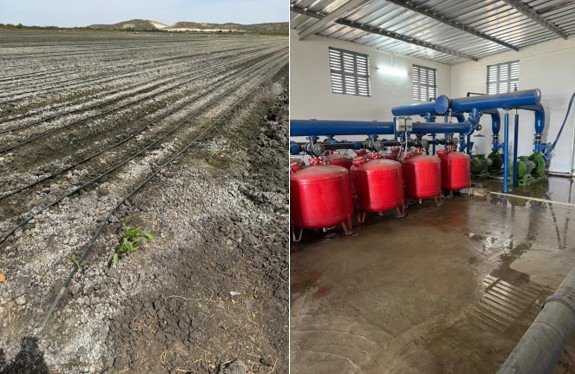
Lesdat
Set up by 3 Senegalese families, this company has invested $10m in 50 hectares of net greenhouses. Crops are sown in October, and cultivation lasts from January to July. Cucumbers, tomatoes, chili peppers, peppers, and papaya are grown here. Prices of cucumbers here are very high. This ranges from 10 to 15 euros per kilo. Tomatoes are sold for 15 euros a kilo. Tomatoes are therefore called the red gold. Tomatoes are even imported to Senegal from Morocco due to shortages. Import costs for this are 30%, with trade costs and transport this totals 50% cost.
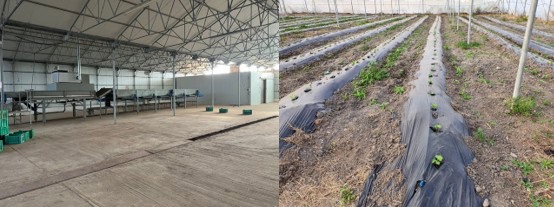
The men have also been touristy. Slave island Gorée and Sant Louis, the capital of the region of the same name, have been visited. There are two versions of the etymology of the French name Gorée. One is said to refer to the South Holland former island of Goeree, another to 'Goe Ree' or Goede Rede. The Dutch West India Company built two forts there. The island has been on Unesco's World Heritage List since 1978.
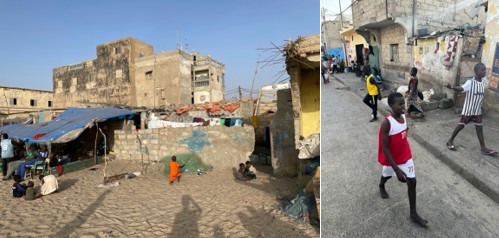
SCL: Societe de Cultures Legumieres
In 2006, Societe de Cultures Legumieres SCL started 200 hectares of open-field cultivation. This is with 2 owners. Michael Laurent is one of the owners with a good vision and is very socially minded. Sales are always arranged in advance. A lot goes to England and the Netherlands. Total now 1400 hectares of maize, 300 hectares of beans, 300 pumpkins, and 300 hectares of onions. The varieties usually come from Sakata-Seeds or AgroSeeds.
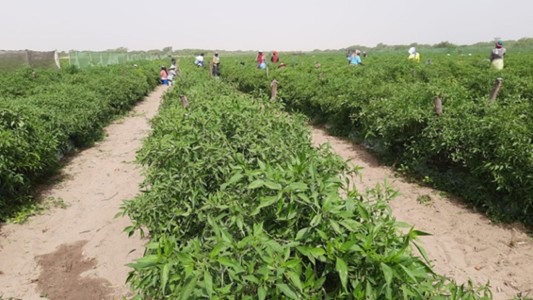
There are a total of 3 production sites in northern Senegal. The company is located close to a freshwater river. Land cannot be bought here but is in use. A total of 7000 staff. All local people. The biggest challenge at the start of the company was financing. There is no ownership of land, so no banks are interested in financing. Also, staff have no agricultural background. Staff are well motivated and keen to develop.
No housing is arranged, but a doctor, schools, and food are provided. Sixty percent of the staff are women. The basic cost is 4 euros a day, including food. Payment is made by phone, which is common in Senegal. Freshwater has only been available since 1986 due to the building of a dam further up the river, which stopped salt water from the sea coming inland. The water is of good quality. The climate in Senegal is very stable; it does not rain after 15 October.
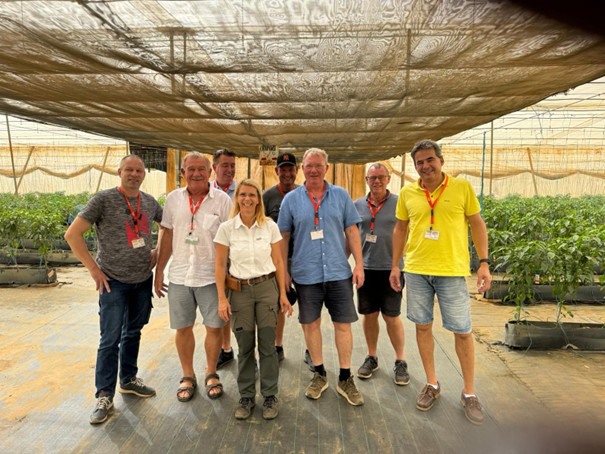
Primeale was also honored with a short visit from the guys of Horti-Consult International. Here, the men mainly discussed transport to Europe. Only one to two cargo ships go from Dakar to Rotterdam. Proportionally, the transport still takes a lot of time. At the company itself, there was little to see at the moment.

Conclusion
After the visit to Senegal, the crop advisers concluded that it is a country with many opportunities but with little agricultural background. However, the country does possess the basis to become important in the agricultural field. A lot still needs to be developed in this area, but this gives the inhabitants more opportunities to develop further. Overall, it is a country with much diversity and also underestimated in terms of tourism.
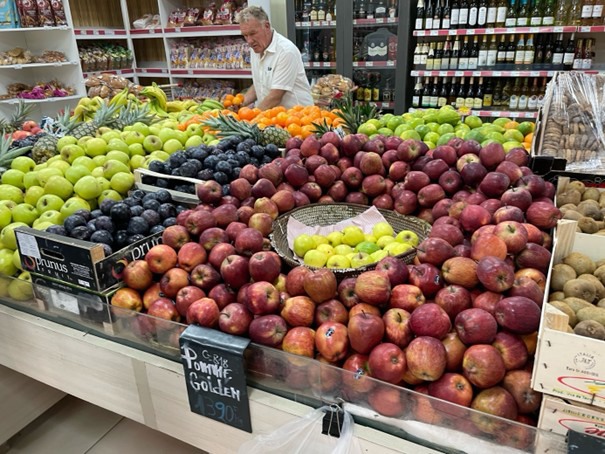
For more information:
Horti-Consult International 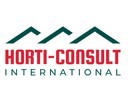
info@horti-consult.nl
www.horti-consult.nl
